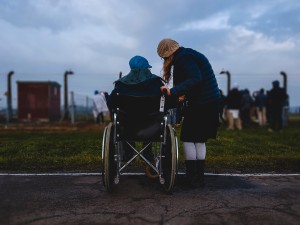 The concept of capacity is extremely important in estate planning and elder law. Whether you are planning for your own future or you have a loved one who is having health issues impacting their ability to make decisions for themselves, it is essential to understand capacity. This blog will explain what capacity is from a legal point of view and how to determine if someone has the capacity to make decisions on their own.
The concept of capacity is extremely important in estate planning and elder law. Whether you are planning for your own future or you have a loved one who is having health issues impacting their ability to make decisions for themselves, it is essential to understand capacity. This blog will explain what capacity is from a legal point of view and how to determine if someone has the capacity to make decisions on their own.
What Is Legal Capacity?
In the estate planning and elder law fields, capacity simply means that a person has the mental faculties to make legal decisions for themselves. This would include decisions related to their finances, as well as making their own medical decisions. This subject comes up most often when someone is making an estate plan and they want to name someone to make decisions on their behalf should they become incapacitated. In elder law, it occurs when a loved one needs to have someone else declared incapacitated.
In some cases, it is very obvious that someone has become incapacitated. For example, if they are in a medical coma due to an accident or illness, they obviously cannot make decisions for themselves. In many other cases, however, it is not so easy. As someone gets older, or if they progress in a disease like Alzheimer’s, for example, it can be quite difficult to pinpoint when they are no longer able to make important decisions on their own behalf.
How to Determine Capacity
When attempting to determine the capacity of a loved one, you need to make sure to look at the situation in the same way that the courts will look at it. The courts are very careful not to declare someone incapacitated without sufficient evidence. Allowing someone the right to make their own financial, legal and medical decisions as long as possible is very important, which means loved ones need to have a solid case if they want to have someone declared incapacitated. The following are some types of evidence used in capacity cases:
- Medical Professionals – In most cases, the strongest evidence is going to come from doctors and other medical professionals. Having a specialist in the condition that your loved one is facing state that they are not mentally able to make these decisions is important.
- Past Behavior – If your loved one has been behaving erratically or been making decisions that are clearly not in their own best interest, this can serve as evidence that they need someone else to step in and help.
- Caretaker Testimony – Someone who spends a significant time with your loved one as a caretaker can often be a witness to changes in behavior or mental clarity.
- Other – Every case is unique and should be treated as such. Making a case to have someone declared incapacitated should always be done based on the very specific situation your loved one is facing.
Caring Legal Help
It is a very difficult decision to try to determine whether a loved one is capable of making their own decisions, and not one to take lightly. Our team can help you through this process so that you and your loved one get the help that is needed, without excessively stepping on their independence. Contact ProActive Legal Care to go over your options today.























